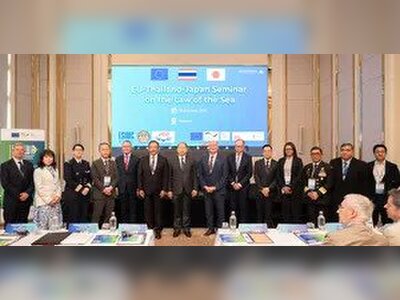Thailand Positioning for Economic Growth from Aging Population
Thailand is preparing to capitalize on the projected 3.5 trillion baht 'Silver Economy' as the country’s elderly population expands. A comprehensive study conducted by the Thailand Development Research Institute (TDRI), commissioned by the Office of the National Economic and Social Development Council (NESDC), reveals the economic and social potential linked to this demographic shift.
The United Nations has identified the period from 2001 to 2100 as the 'Century of the Elderly,' a timeframe characterized by more than 10% of the global population being over the age of 60. While this demographic trend presents certain hurdles, including labor shortages and increased social welfare burdens, it simultaneously opens significant avenues for economic development in nations such as Thailand.
MONTHIP SAMPHANTHAWONG, Director of the Division of Human Resource and Social Development Strategy at NESDC, indicated that Thailand is on track to become a 'Super-Aged Society' within the next decade. She emphasized that this demographic transition presents an 'unprecedented opportunity' to develop the 'Silver Economy,' focusing on goods and services tailored to older individuals and enhancing the ability of seniors to participate actively in the workforce.
According to TDRI Senior Researcher NONARIT BISONYABUT, consumer spending among older citizens in Thailand reached 2.18 trillion baht in 2023, with this figure anticipated to surge to 3.5 trillion baht by 2033. The majority of this spending is directed toward essential household items and food. Additionally, income derived from elderly employment is forecasted to rise from 640 billion baht in 2024 to 880 billion baht by 2033. Projections suggest that around 6.6 million seniors, approximately 37% of the elderly demographic, will be participating in the labor market.
However, challenges such as low savings rates, existing debt, and premature exits from the labor force pose notable barriers to realizing the full potential of this economic growth.
The TDRI research identifies four key sectors with substantial potential for development within the aging populace:
- Housing: This encompasses elderly community groups, specialized housing and care centers designed for varying age ranges, and home renovation services adhering to Universal Design principles.
- Food: A focus on nutritional supplements, easily consumable food products, and diet plans for individuals with Non-Communicable Diseases (NCDs).
- Health: This involves elderly care services, medical products, healthcare innovations, and planning for end-of-life arrangements.
- Recreation: This includes knowledge-sharing platforms, activity groups, transport services, and companionship options.
The report underlines that opportunities also exist for seniors to actively engage in these sectors by producing community-centric products, taking on caregiver roles (amidst a recognized shortage), generating income online through hobbies, or assuming roles as 'Granfluencers' (elderly influencers).
Policy recommendations proposed by TDRI aim to foster the growth of these sectors. For the food sector, it emphasizes the need for clear standards, proper consumer information, and support for research and development initiatives. In housing, the encouragement of businesses to create tailored solutions for low-income or specific-needs elderly groups using local materials and innovations is essential. Pre-retirement health promotion programs, along with backing for Thai entrepreneurs to develop advanced healthcare products, were recommended for the health sector.
To enhance the availability of services, improving access to financial products, insurance, and tourism infrastructure was deemed vital. Supporting elderly employment in formal sectors includes policies that promote 'second jobs/careers,' preparing workers with new skills for career transitions before and after retirement. Legislative changes to facilitate suitable post-retirement jobs and extend retirement ages in both public and private sectors were also proposed.
In the informal workforce, enhancing both hard and soft skills, improving funding access for entrepreneurial endeavors, and facilitating community-based job matching to mitigate travel barriers are crucial.
The report suggests a significant shift from a welfare-focused mentality towards one that actively promotes economic and social growth, thereby driving the silver economy.
Conference attendees reinforced important messages: fostering a robust silver economy begins with promoting good health from the 'pre-aging' stage, ensuring a healthier elderly population equipped to contribute to economic activities. Recommendations also advocate for extending retirement age based on 'rights and choices.'
Furthermore, there is a crucial emphasis on home improvements to facilitate 'aging in place,' with preparations ideally starting around the age of 40. Government incentives, such as tax deductions for working-age children who improve access to relevant goods and services for elderly relatives, were also discussed. A 'generational approach' is highlighted as necessary for enhancing health literacy and raising awareness about new goods and services among younger generations, also positioning caregiving and care management as professional careers rather than merely welfare obligations.











